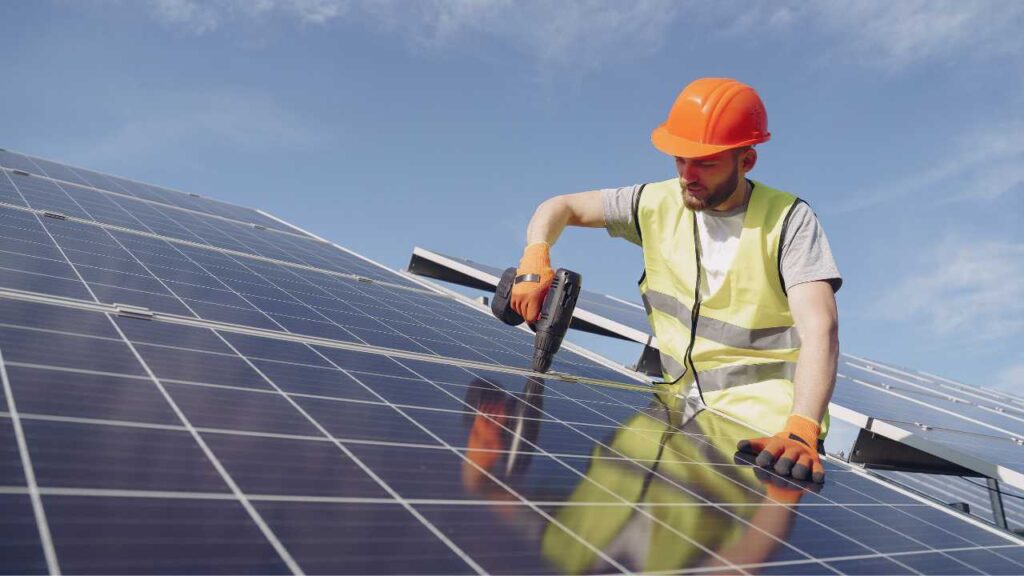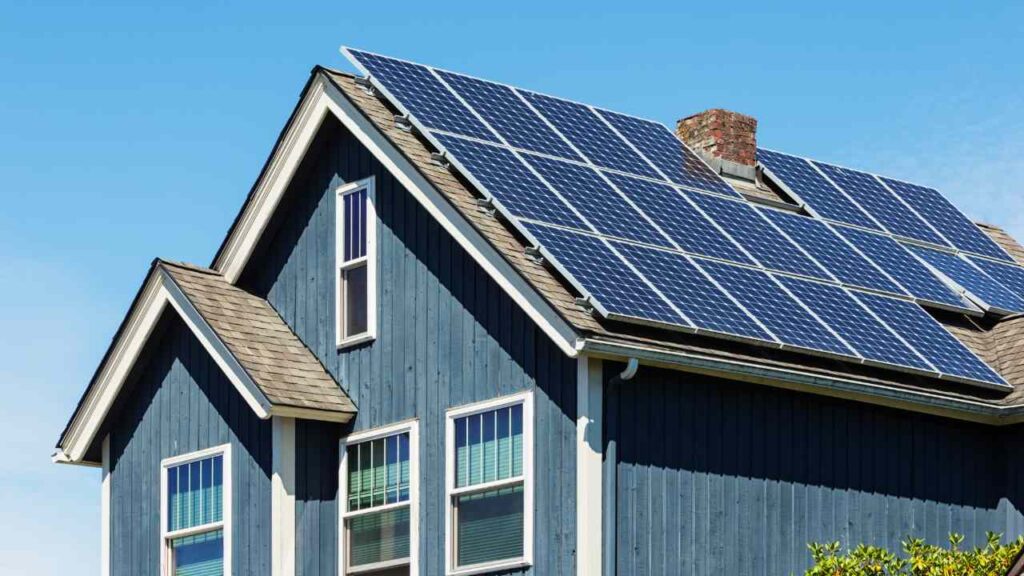What really affects the performance of your solar panels? While installing a solar PV system is a great step towards energy savings, several factors can influence how efficiently it works.
From temperature and shading to panel orientation and maintenance, each element plays a role in how much electricity your system produces. If ignored, these issues can reduce your system’s output and increase payback time.
In this blog, we’ll explore the most common factors that can affect your solar PV efficiency and explain how to overcome them. Whether you’re planning a new installation or improving an existing setup, this guide will help you get the most from your solar investment.
Let’s start!
What Are The 5 Factors That Affect Solar Panel Efficiency?
To get the most out of your solar panels, it’s important to understand what can influence their performance. Several environmental and technical factors play a role in how efficiently your system generates electricity.
1. Temperature
Heat has a notable impact on solar panel performance. In general, high temperatures can lower efficiency, while cooler conditions tend to improve it. The extent of this effect varies depending on the type of solar cell used.
For example, thin-film panels usually handle heat better than crystalline silicon panels. Choosing the right panel type based on your region’s climate is essential for consistent performance.
2. The Intensity of the Sunlight

Solar panels perform best under stable and moderate sunlight. Too much or too little sunlight can reduce energy production by pushing cells outside their optimal operating range. Photovoltaic (PV) cells are particularly sensitive to intensity levels.
Many modern systems include sensors or mechanisms to manage this. Maintaining the right level of exposure is key to improving efficiency.
3. Shading
Shade from nearby trees, walls, or other structures can significantly lower output. Even partial shading can reduce performance across the whole panel or cause localised hot spots. This not only decreases efficiency but can also lead to long-term damage.
Installing panels in a clear, sunlit area is essential. If full sun can’t be guaranteed, specialised panels designed to handle shading may be a good option.
4. Climatic Conditions
Weather and seasonal changes influence how much sunlight reaches your panels. Panels work best when the sun is directly overhead, but that angle varies throughout the year. Low sun angles mean sunlight must pass through more atmosphere, which can scatter or absorb light.
Clouds and mild shading may reduce output but can also help cool the panels. Both factors need to be considered when planning your system.
5. Time of Use of Solar Panels
Over time, solar panels can lose efficiency due to wear, dust, and material degradation. While most panels last 20–25 years, regular maintenance is necessary to keep them working well.
Dirt and debris can block sunlight from reaching the cells. Cleaning and checking your system periodically helps maintain output. Among the many factors that can affect your solar PV efficiency, system age and cleanliness are often overlooked but vital.
What Are The Simple Ways to Maximise the Efficiency of Your Solar Panels?
Improving how your solar panels perform doesn’t have to be complicated. A few smart decisions and regular care can go a long way in overcoming the factors that can affect your solar PV efficiency.
1. Choose High-Efficiency Solar Panels

Not all solar panels convert sunlight equally. Opting for panels with higher efficiency ratings ensures more energy output from the same amount of sunlight. While they may cost more upfront, they offer better returns over time.
2. Refrain from Installing Panels in Shaded Areas
Even minor shading from trees or buildings can greatly reduce a panel’s output. During installation, assess the location carefully to avoid any objects casting shadows on the panels. If unavoidable, consider using panels with bypass technology to reduce losses.
3. Seek Help from Professional Experts
Correct installation is crucial to ensure your panels are angled and positioned for maximum sun exposure. Professionals will also ensure proper spacing for airflow, which helps prevent overheating and loss of efficiency during hot weather.
4. Regular Cleaning of Solar Panels
Dirt, dust, and bird droppings can block sunlight and reduce output. Cleaning panels with soft cloths or mild soap during cooler parts of the day can help maintain their performance. This is especially important in polluted or dusty areas.
Conclusion
Understanding the key factors that can affect your solar PV efficiency—such as temperature, shading, sunlight intensity, climate, and maintenance—can help you get the best performance from your system. Choosing the right panels, placing them correctly, and keeping them clean all play a vital role in long-term energy savings. If you want to maximise your system’s potential and avoid common efficiency losses, it pays to get expert support.
Contact SPV Energy today for professional advice, installation, and maintenance services customised to your needs. We’re here to help you make the most of your solar investment.
FAQs
1. What affects solar panel efficiency the most?
Solar PV efficiency is influenced by sun intensity, system temperature, shading, panel orientation, and cleanliness. Each of these elements can impact energy output by up to 10–20% or more if not optimised.
2. Does shading from trees or buildings matter?
Yes. Even partial shading can significantly reduce panel output or cause hot spots, lowering overall system performance. Avoid shaded installation sites where possible.
3. Can SPV Energy optimise panel orientation for better output?
SPV Energy assesses your roof and local sun path to install panels at optimal tilt and facing directions—ensuring maximum sunlight capture throughout the year.
4. Does SPV Energy offer regular cleaning to maintain efficiency?
Yes—our maintenance service includes scheduled cleaning and inspection. Removing dirt, debris, and pollen helps preserve up to 20–30% more panel efficiency.
5. Will SPV Energy recommend high‑efficiency panels and inverter matching?
We advise on high-grade monocrystalline or advanced cell types, pairing them with compatible inverters to reduce losses and maximise performance.
6. How often should solar panels be cleaned?
Panels typically need cleaning every 6–12 months, especially in areas with high dust or pollution. Cleaning during cooler hours avoids thermal stress damage.

